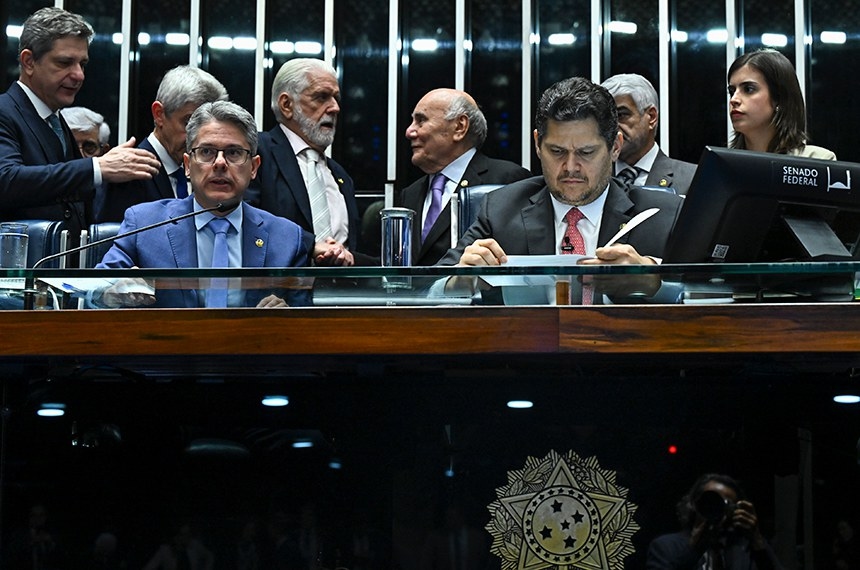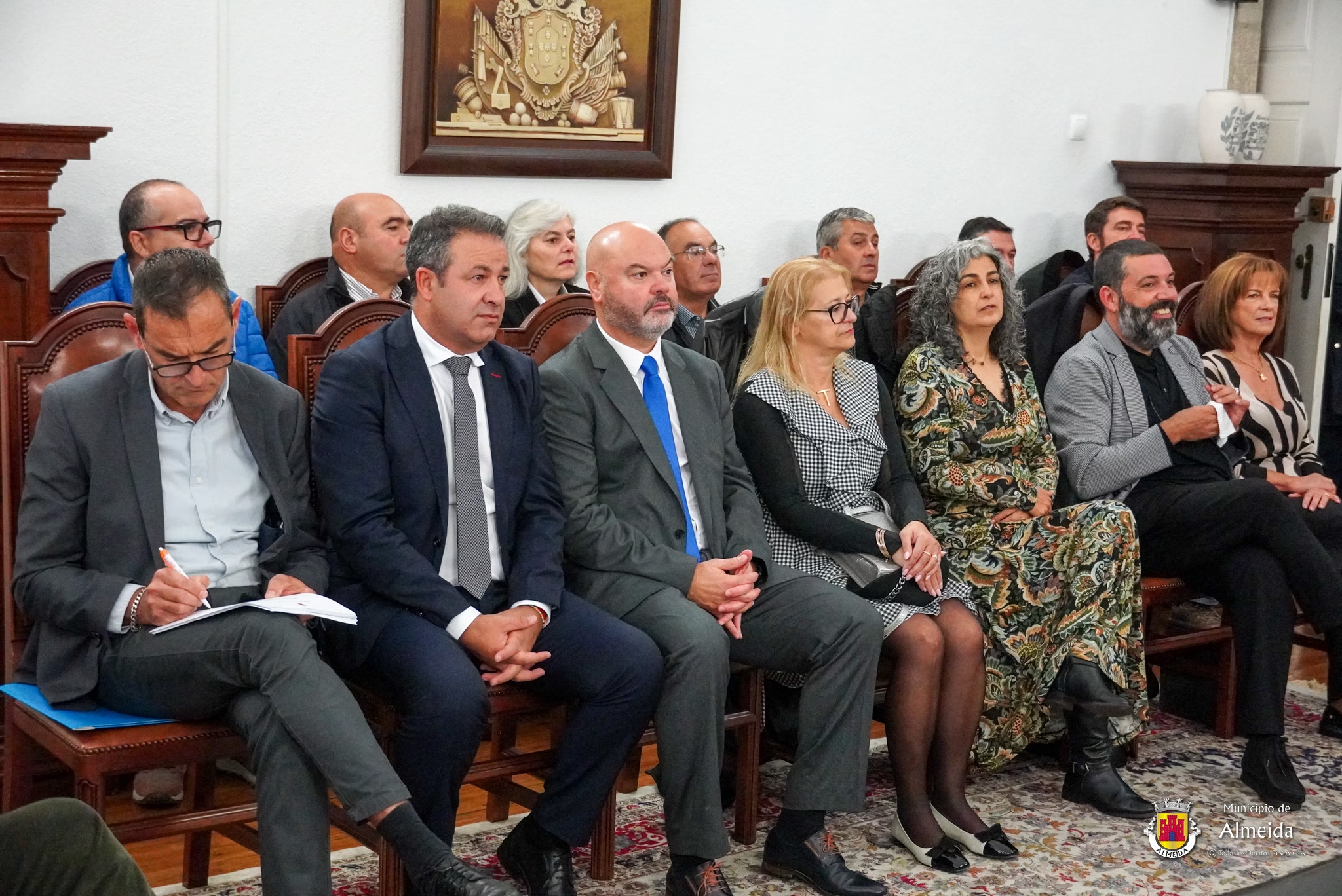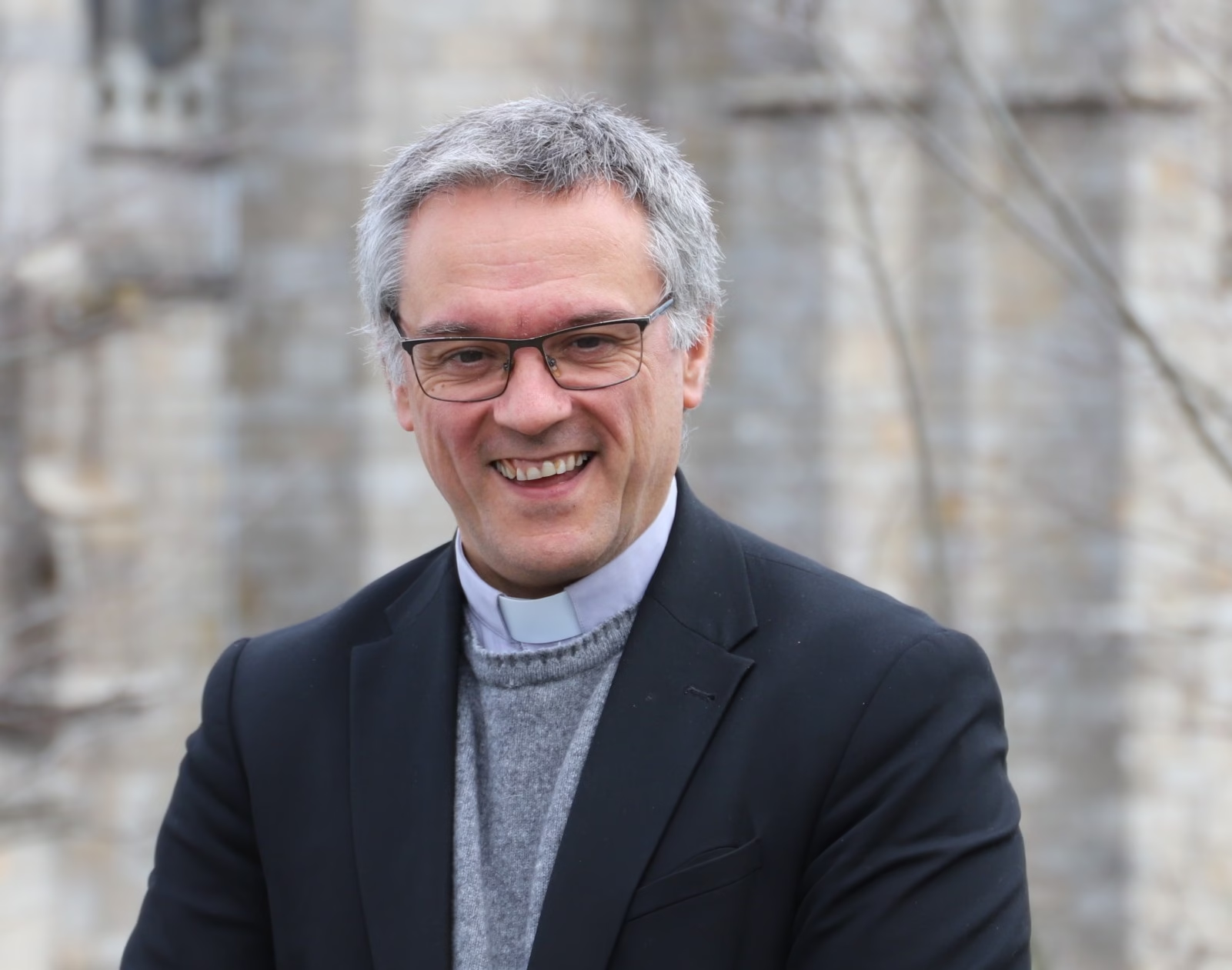The Organized Crime Parliamentary Inquiry Commission will investigate the expansion and infiltration of criminal factions.

The Senate will install the Parliamentary Commission of Inquiry (CPI) on Organized Crime next Tuesday (4), authorized by the president of the House, Davi Alcolumbre (União-AP), as a response to the commotion generated by Operation Contenção, launched by the police of Rio de Janeiro, last Tuesday (28), to confront Comando Vermelho.
Proposed by Senator Alessandro Vieira (MDB-SE), the new CPI (Parliamentary Commission of Inquiry) will aim to investigate the structure, expansion, and financing of factions and militias throughout the country. Furthermore, according to the justification for its creation, the commission will seek to investigate the infiltration of these organizations into public institutions and the use of money laundering schemes to sustain the criminal network.
The topic will be revisited in Congress after 25 years. The Parliamentary Commission of Inquiry into Drug Trafficking, which concluded in 2000, took more than 350 testimonies, produced a 1,200-page report, and indicted more than 800 people, including businesspeople, judges, and politicians.
The report revealed the infiltration of drug trafficking into state structures and money laundering through businesses and election campaigns, but had limited practical impact—few were convicted.
Two decades later, the situation has worsened, according to Senator Magno Malta (PL-ES), who participated in that CPI (Parliamentary Commission of Inquiry). He observes that organized crime is no longer limited to drug trafficking, having expanded into a diversified territorial and financial domain. Factions and militias have transformed into criminal conglomerates operating in sectors such as fuel, illegal mining, alternative transportation, and clandestine internet.
The senator says that, at that time, he was already warning about the infiltration of organized crime into politics, "financing campaigns and dominating territories." "I was ignored, attacked, and discredited. Today, time has proven that I was right. What was a faction has become a structured criminal organization. So, it wasn't the Parliamentary Commission of Inquiry that failed. It was the State that failed, which knew what needed to be done and didn't do it."
Malta states that the new Parliamentary Commission of Inquiry (CPI) will be necessary to investigate "institutionalized narcoterrorism, with the approval of those in power." "The Supreme Court calls Christians and patriots terrorists, but treats criminals as victims of society. The Lula administration flirts with crime, humiliates the security forces, and pretends not to see the terror that the factions impose on the people," he added.
According to public security analysts interviewed for this report, the fundamental difference is the economic complexity. While the 2000 Parliamentary Commission of Inquiry diagnosed corruption, the current one will need to dismantle a larger, larger criminal corporate network.
The Parliamentary Commission of Inquiry will provide a diagnosis and solutions for the security crisis.According to the author of the request, Senator Alessandro Vieira, Brazil is at a turning point with the "complete dominance of criminal factions," which is why he advocates for "a national pact focused on diagnosing and finding solutions to the public security crisis."
Considered a candidate to be the rapporteur for the Parliamentary Commission of Inquiry (CPI), Vieira insists that the commission must be technical and non-partisan. “This tragedy has a solution, but it will require courage, technical knowledge, public spirit, and unity among municipalities, states, the federal government, and civil society. This is not an electioneering issue; it is a national emergency.”
During the unfolding of the mega-operation in Rio de Janeiro, in which Governor Cláudio Castro (PL-RJ) stated that the state had acted alone against Comando Vermelho, the federal government refuted the accusations. However, later, the Federal Police admitted that they had been consulted about participating, but declined.
Vieira states that this lack of coordination between authorities will be one of the targets of the CPI (Parliamentary Commission of Inquiry), which also intends to hear about successful public security experiences from other states that could serve as examples for the country.
“We will bring in authorities such as secretaries, technicians, and state governors who are successfully combating violent crime, both in Brazil and abroad. These responses from the Parliamentary Commission of Inquiry should align, and together, provide Brazil with a set of guidelines, such as significant budgetary reinforcement, a genuine national security plan, and integration in prevention and repression. And this doesn't require a Constitutional Amendment,” he stated.
The commission should focus on five key areas:
- Structure and functioning of factions and militias;
- Sources of funding and money laundering;
- Infiltration of crime into public institutions and companies;
- Lack of coordination between security forces;
- Legislative proposals to modernize the fight against organized crime.
Senator Marcos do Val (Podemos-ES), who will return to the Senate after a leave of absence to join the CPI (Parliamentary Commission of Inquiry), is confident that the investigations will be thorough. “The Organized Crime CPI will not be a stage for empty speeches. We will expose the behind-the-scenes corruption, confront the powerful, and break the silence imposed by the system. No white-collar criminal is safe,” he wrote on social media.
Senators criticize "unequal game" and demand integration between branches of government.A member of the CPI (Parliamentary Commission of Inquiry), Senator Eduardo Girão (Novo-CE) defended the union of security forces and warned that the lack of integration between federative entities aggravates the crisis. He cited the growing violence in Ceará, comparing it to the situation in Rio de Janeiro.
“What is happening in Ceará is already comparable to Rio de Janeiro. We could see the situation worsen. I requested federal intervention from the Lula government and, since March, there has been no response. The presence of the National Force would be essential to restore a minimum sense of security,” he declared.
Senator Sérgio Moro (União-PR) sees the CPI as a chance to build a thorough diagnosis of the infiltration of criminal factions into institutions. “We cannot ignore what is happening. Brazil is at war with organized crime. This conflict in Rio de Janeiro illustrates the magnitude of the problem,” he declared.
According to Moro, the commission needs to assess the financial and political power of the factions, especially in the sectors of the informal economy and money laundering.
"It is possible to move forward. There are no magic solutions, but the CPI (Parliamentary Commission of Inquiry) can be an appropriate forum for the Senate to provide an effective and concrete response," he emphasized.
In a speech on the Senate floor, Senator Confúcio Moura (MDB-RO) stated that there is an "unequal game" between the police and organized crime—due to technology and bureaucracy. "The Comando Vermelho has expanded as a connected business network, with interstate and even international ramifications. The crime acts with coordination and financial intelligence, moving huge sums of money that the State is still unable to trace," he said.
Expert points to the "economic complexity" of the crime as a priority for the Parliamentary Commission of Inquiry.Political scientist João Henrique Martins, a consultant and researcher of criminal policies, believes that the Parliamentary Commission of Inquiry (CPI) could be a starting point for a structural reform of the criminal justice system, if it maintains a technical and not ideological bias.
“A Parliamentary Commission of Inquiry has the tools to help reform the criminal justice system in Brazil. This reform — which involves criminal law, the prison system, and criminal policy — is the most important issue in the country today, even more so than the economy or political polarization. Lives and the future of civility in Brazil depend on it,” he said.
Martins argues that the CPI (Parliamentary Commission of Inquiry) should go beyond rhetoric and criticizes what he calls a "completely distorted and unscientific view" that focuses on ideological or folkloric aspects of the factions. For him, the core of the issue is purely economic, and the CPI should demonstrate this.
“Organized crime is, above all, a large illicit business, driven by profit and power. If the Parliamentary Commission of Inquiry is technical and thorough, it can reveal the economic and legal roots of this structure and even set the agenda for the next elections. But, if it is just another ideological battle, we will lose another opportunity to confront the main problem of our generation,” he added.
Legal expert Fabrício Rebelo, a researcher in public security, believes that the establishment of the CPI reflects more of a political gesture than a technical one.
"The installation at this moment appears much more like a political choice, a response to what happened in Rio de Janeiro, to give the impression that parliamentarians are concerned about security and to use this in the upcoming campaigns," he said.
When comparing it to the previous CPI (Parliamentary Commission of Inquiry), Rebelo states that the result should be the same. “We will probably see the same thing as the Drug Trafficking CPI: a lot of noise, interviews, and zero results. Without effective mechanisms to ensure that criminals are arrested and remain in custody, anything else is just media pyrotechnics,” he explained.
He also questions whether the Senate will be willing to go all the way and delve deeper into investigations into public power and politics.
“The crucial question is whether there will be the political will to investigate the connections within institutions and politics. If there is, it's just a matter of following the money. But this path could bring uncomfortable revelations to the power structure itself,” he concluded.
See who the members already appointed to the Organized Crime Parliamentary Inquiry Commission are:Holders
- Alessandro Vieira (MDB/SE)
- Sergio Moro (Union/PR)
- Marcos do Val (PODEMOS/ES)
- Otto Alencar (PSD/BA)
- Jorge Kajuru (PSB/GO)
- Flávio Bolsonaro (PL/RJ)
- Magno Malta (PL/ES)
- Rogério Carvalho (PT/SE)
- Jaques Wagner (PT/BA)
- 2 vacancies not filled or not identified in the source.
Alternates
- Marcio Bittar (PL/AC)
- Eduardo Girão (NOVO/CE)
- Fabiano Contarato (PT/ES)
- 4 vacancies not filled or not identified in the source.
The Organized Crime CPI, which will be composed of 11 full members and 7 alternates, will have 120 days to conclude its investigation work, starting from its installation next Tuesday (4).
The committee will be responsible for analyzing the modus operandi of criminal organizations, their conditions for development in each region, and their decision-making structures. Ultimately, the CPI (Parliamentary Commission of Inquiry) must present a conclusive report with indictments and concrete proposals for changes in legislation to combat organized crime in the country.
The Workers' Party (PT) did not support the creation of the Parliamentary Commission of Inquiry into Organized Crime.Although the CPI (Parliamentary Commission of Inquiry) gathered signatures from 31 senators, the PT (Workers' Party) did not support its creation. The party alleges "overlapping issues" with actions already being conducted by the Executive branch, such as the PEC (Proposed Constitutional Amendment) on Public Security, currently under consideration in the Chamber of Deputies. Despite this, the committee already includes three senators from the government's base: Jaques Wagner (PT-BA), Rogério Carvalho (PT-SE), and Fabiano Contarato (PT-ES).
On social media, Jaques Wagner defended the "dismantling of organized crime financing" as a priority. He cited as examples the "financial center of São Paulo, which had ties to the PCC" – a reference to Operation Hidden Carbon, concentrated in São Paulo, which investigated the faction's involvement in the fuel sector, with branches in the financial sector –; and Operation Primus, in Bahia, which uncovered a "scheme that has already blocked more than R$ 6.5 billion" – the investigation is conducted by the state's Civil Police and also investigates the PCC's ramifications in controlling gas stations.
“We need to focus not on a war operation, but on breaking the pockets of those who finance crime. That's why it's so important to approve the Security Amendment, proposed by the government, and combine intelligence efforts,” he wrote.
gazetadopovo




